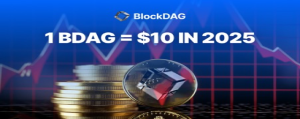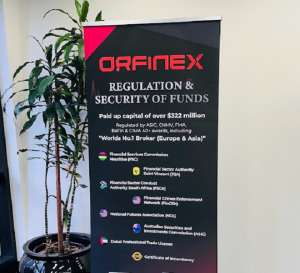Sixth largest Tier 1 FX dealer goes the failing challenger bank route
Why is the world’s sixth largest FX dealer by market share looking to buy a failing, regional retail outfit? Ah, yes, that’ll be the reason….

If you can’t beat ’em, join ’em, so says the old adage.
In the case of mainstream Tier 1 banks which participate in the largest market share with regard to FX dealing, that particular well worn prose is infra dig.
Until now, the large, established banking institutions have stuck firmly to their core business activities, which remain firmly in the investment banking and top level market making and dealing categories.
Some of the largest FX dealers in the world have for literally hundreds of years been among the largest retail banks globally too, however with the waning of high street branch banking and the move to apps and electronic finance having empowered the retail customer, and the inefficiency of branch banking, many – Barclays being a major example – have sold off and closed entire retail divisions to concentrate on Tier 1 dealing from the towers of Canary Wharf.
Today, however, an interesting dynamic has taken place, as Goldman Sachs, which by the end of last year had managed to hold its three year long position as the sixth largest FX dealer in the world with 5.89% of global market share, has indicated its position on the future of financial services by increasing its stake in London’s Metro Bank to 8.5% making it one of the largest shareholders in the London-based start-up.
Metro Bank is something of an anomaly, for more reasons than its ultra-modern approach toward revolutionizing high street retail banking in London.
Established in 2010, it became the first high-street bank to be granted such a licence for over 150 years. The company planned to open between 200 and 250 branches in Greater London within ten years of starting up, with its first branch having opened on 29 July 2010 in Holborn.
In 2012, Metro Bank raised an additional $200 million in funding from investors including Fidelity, Steven A. Cohen of hedge fund SAC Capital Advisors, and New York real estate investors the LeFraks and David and Simon Reubens. In the same year, Forbes magazine reported that Metro’s flagship Holborn branch had “…garnered $200 million in deposits, four times the total at the average mature American branch.”
Banks raising capital from hedge funds and VC companies? That is not the stuff of the establishment, and in many cases, the large Tier 1 banks would avoid the new, VC-indebted challengers like a rottweiler would avoid lentils and broccoli, so there has to be more to this than meets the eye.
It is especially interesting considering Metro Bank’s massive losses and regulatory issues since it was established.
On 2 May 2013 the Daily Telegraph reported that, following a loss of £8.8 million in the first quarter of 2013, Metro Bank’s pre-tax losses had exceeded £100 million in less than three years since its launch, but the bank stated that these were planned for, and were “a result of its growth initiatives”.
In an interview with the Financial Times, Mr Hill said the bank was “in line with the business plan to rapidly grow this company,” he added. “Our primary goal is to expand the business, and profit certainly will come.”
Metro Bank increased its account holders by 50% in the first half of 2013 for a total of 200,000 customer accounts, including 15,000 business accounts. It was aiming to have 200 UK branches open by 2020. Metro Bank acquired SME Finance in August 2013, and rebranded the business as Metro Bank SME Finance in May 2014.
In January 2019, Metro Bank admitted classifying a portfolio of commercial loans for capital purposes incorrectly, thereby failing to hold sufficient capital to meet regulatory requirements. The error applied to around 10% of its loan book.
The miscalculation was identified through a review by the Prudential Regulation Authority (PRA) but Metro Bank erroneously gave the impression that the bank had identified the incorrect classification itself.To correct the error in the capital classification, Metro Bank announced a £350m share issue and that it would reduce its growth plans. It was also reported that the PRA and the Financial Conduct Authority were to investigate the circumstances of the error.
As a result of the admission and the share issue announcement, Metro Bank’s share price fell sharply, losing 40% of its value in the month after the announcement and 75% in less than four months.[16] By March 2019, the BBC reported that Metro Bank shares were the second most shorted shares on the UK stock market. Additionally, large depositors began withdrawing funds. Metro Bank admitted that there had been a 4% drop in its deposits in the first quarter of 2019 because of “adverse sentiment”.
Would a bank such as Goldman Sachs invest in some of the online challengers which are totally dependent on VC capital, keep raising funds and have absolutely no money to the point that when the challenger bank phenomenon is no longer fashionable, and the VCs stop giving round after round and the challenger banks go to the wall, taking client capital with them, if they did not think they could acquire the whole lot should that happen?
FinanceFeeds has already several times made the point that companies such as Starling Bank or Dozens have captured the attention of the 25 to 35 year old London trendies, with ultra-modern advertisements everywhere from underground stations to electronic billboards, yet have no money and are reliant on the continual raising of almost no-questions-asked VC funding.
Meanwhile the big hitters of Canary Wharf are sitting tight and ignoring them, knowing that when the fad is over, life in the financial world will be exactly as it was before the challengers began their challenge.
Perhaps Goldman Sachs is putting up a very conservative bid to take Metro Bank over should it fail. We all know that the big banks are too big to fail, that has been proven several times, a notable example being Fred Goodwin’s attempt to feather his own nest when he brought Royal Bank of Scotland down in the late 2000s, and got away with it, leaving the British tax payer to clear his mess up whilst he collected his vast pension and walked away scot free, if you’ll excuse the pun.
Let’s assume that eventually Metro Bank runs out of steam, Goldman Sachs would be now in a position to make a cheap bid to acquire the entire entity.
A mainstream bank such as Goldman would ordinarily not be interested in investing in a failing challenger bank, and its shareholders would not allow it, so there has to be more to this than just economies of scale, because Goldman does not need a failing regional start up to scale its massive and dominant business.
Metro Bank’s share price has collapsed almost 90 per cent since early 2019, when it disclosed an almost £1 billion accounting error, and a £131 million loss last year following the scandal, which also claimed the jobs of its chief executive and chairman, and has been widely touted as a possible takeover target.
Goldman has built up 6.18 per cent in Metro Bank voting rights attached to shares, and a further 2.30 per cent through financial instruments, leaving it with a total of 8.48 per cent, according to Metro’s regulatory filings.
Speaking to reporters following Metro Bank’s annual results last week, newly-appointed chief executive Dan Frumkin refused to say whether the lender had been approached by potential buyers.
Read more: Metro Bank shares plumb new depths after challenger bank swings to £131m loss
“There is nobody actively marketing the place for sale,” he said.
Goldman Sachs is keeping tight lipped over its intentions, but should a fire sale come about, this could provoke a cheap and quick entry into London’s retail client base – many of whom are not the traditional banking customer – for Goldman Sachs, and we in the OTC derivatives sector have to begin to wonder what Goldman will do with them.









